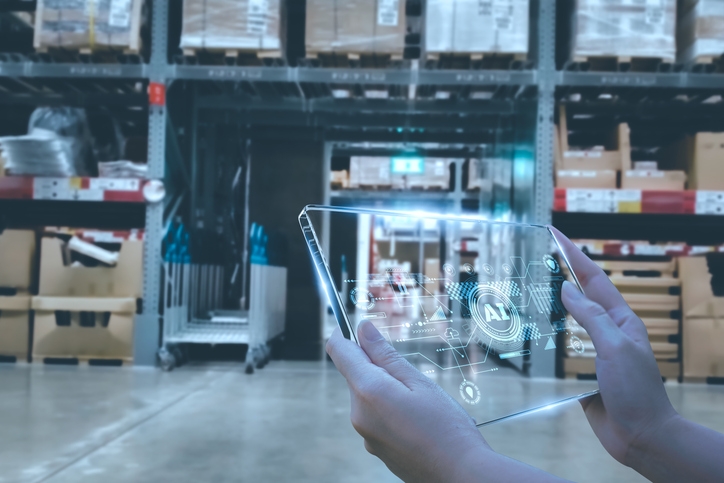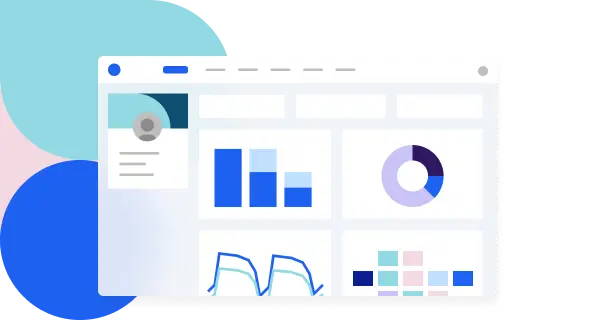Top 20 Ways to Create Personalized Attendee Experiences with AI
Discover 20 effective ways to enhance attendee experiences using AI. Elevate your events with personalized interactions. Read the article to learn more!

Introduction
In today’s events industry, personalization is no longer a nice-to-have—it’s the foundation of attendee engagement and satisfaction. Whether you’re planning a corporate event, trade show, or virtual conference, event attendees expect experiences that feel tailored to their preferences, schedules, and professional goals.
That’s where artificial intelligence (AI) transforms event management. AI-driven personalization helps event planners leverage attendee data, anticipate behavior, and deliver personalized experiences that enhance customer satisfaction, improve event ROI, and even reduce costs.
Below, we break down 20 execution-ready ways to use AI-powered personalization in your next event—with clear insights on cost, effort, resources, and real-world applications.
1. Turn Attendee Data into Personalized Agendas with AI Tools
How it works:
AI algorithms analyze attendee data (from registration forms, pre-event surveys, and past events) to design customized event schedules. Instead of receiving the same generic agenda, each participant gets a tailored event experience aligned with their interests, role, industry, and behavior patterns. For example, one attendee may be guided toward leadership panel discussions, while another is nudged toward niche breakout sessions that match their learning goals.
Execution:
- Data Collection: Collect first-party data at registration (job role, goals, preferences, dietary restrictions). Add a short pre-event survey for deeper insights.
- Integration: Sync this data with your event management platform (Azavista, Grip, Swapcard).
- AI Processing: AI tools use predictive analytics to create dynamic event schedules that update in real time (e.g., suggesting sessions if an attendee’s chosen one is at capacity).
- Delivery: Personalized agendas are shared via event apps, email reminders, or AI-driven personalization features like SMS push notifications.
Effort & Cost:
- Effort: Medium. Requires structured event planning workflows and clear data tagging.
- Cost: $3,000–$8,000 setup, depending on the AI platform and data integrations.
- Resources: One event organizer + a data analyst or IT support for setup.
Why it matters:
- Increases attendee satisfaction by avoiding schedule overload.
- Reduces session drop-offs by guiding attendees to relevant sessions.
- Produces better post-event reports on what content resonated, helping event marketers design future events more effectively.

2. Unlock Smarter Networking with AI Powered Personalization
How it works:
AI uses predictive analytics to match attendees with shared interests, industries, and roles. These networking opportunities are surfaced before and during the event, increasing the likelihood of valuable insights and meaningful business relationships.
Execution:
- Data Points: Gather data on attendee goals (e.g., looking for partners, suppliers, or investors).
- AI Matching: Platforms like Brella or Azavista’s networking matchmaking engine recommend high-value connections.
- Delivery: Attendees receive personalized messages in the event app with AI-curated “people you should meet” lists.
- Tracking: Use engagement metrics to see how many connections are scheduled and completed.
Effort & Cost:
- Effort: Low. Setup is straightforward once integrated with your event planning software.
- Cost: $5–$15 per attendee (platform licensing fees).
- Resources: 1–2 team members for event promotion of networking features.
Impact:
- Drives attendee engagement and boosts overall event personalization efforts.
- Creates stronger brand loyalty by showing attendees that the event values their time.
- Enhances post-event analysis, since you can track networking ROI and gather feedback on connection quality.
3. Personalize Event Marketing with AI-Driven Campaigns
How it works:
AI-driven segmentation helps event marketers deliver personalized content in emails, social media ads, and targeted event promotion campaigns. By tracking attendee behavior and past event engagement, AI ensures each person gets messaging aligned with their preferences and goals.
Execution:
- Audience Segmentation: Split attendees based on attendee preferences, demographics, and engagement history.
- Campaign Setup: Use AI marketing tools (HubSpot AI, Marketo) to generate personalized messages, subject lines, and ad creatives.
- Delivery: Run campaigns across social media posts, retargeting ads, and drip email sequences leading up to the event.
- Analytics: Use AI analytics tools to measure key metrics like open rates, CTR, and conversions.
(For a comprehensive approach, see expert trade show marketing plan strategies.)
Effort & Cost:
- Effort: Medium. Requires one event marketer dedicated to campaigns.
- Cost: $500–$5,000+ ad spend, depending on target size. Platform fees ~$2,000–$5,000 annually.
- Resources: Marketing automation platform, event organizers, and a designer for creatives.
Why it matters:
- Personalization strategy drives higher conversions.
- Increases registrations and attendee engagement before the event.
- Contributes to post-event analytics that reveal which channels performed best for future events.
4. Deliver Dynamic Content in Event Apps Using AI Tools
How it works:
AI ensures that event attendees don’t see generic feeds inside apps. Instead, each user gets personalized experiences—recommended sessions, sponsor offers, exhibitor booths, and relevant personalized content tailored to their attendee behavior.
Execution:
- Integration: Choose event tech providers (Azavista) that support AI features like dynamic content feeds.
- Personalization Setup: Upload event themes, categorize content, and tag exhibitors by audience relevance.
- Delivery: Attendees receive in-app notifications with tailored recommendations (e.g., “Based on your schedule, you might like this panel”).
- Tracking: Monitor engagement metrics like click-throughs, session attendance, and sponsor lead scans.
Effort & Cost:
- Effort: High upfront, but scalable across future events.
- Cost: $10,000–$20,000 setup for AI integration.
- Resources: IT support + vendor collaboration for deployment.
Impact:
- Creates enhanced customer experiences across both live events and virtual events.
- Provides valuable insights into what content drives the most attention.
- Post-event reports help event planners identify sponsor ROI and optimize event management for the next cycle.
5. Recommend Sessions with AI Algorithms for Higher Engagement
How it works:
AI analyzes attendee preferences, past events, and engagement metrics in real time to recommend breakout sessions or panel discussions. For example, if an attendee drops out of a session midway, the system can push an alternative session aligned with their attendee behavior.
Execution:
- Setup: Enable AI recommendation engines within your event planning software.
- Data Sources: Feed in first-party data from registration and event personalization preferences.
- Delivery: Session suggestions appear as push notifications or real-time agenda updates.
- Analysis: Use post-event analysis to track how many recommendations led to attendance.
Effort & Cost:
- Effort: Medium. Built-in for most advanced platforms.
- Cost: Typically included in enterprise-level event tech subscriptions.
- Resources: Event team to set tagging rules for sessions.
Impact:
- Enhances attendee satisfaction by ensuring attendees discover the most relevant sessions.
- Increases participation in breakout sessions that might otherwise have low turnout.
- Produces richer attendee data for post-event reports and future event planning.
6. Real-Time Personalization During Live Events with AI Tools
How it works:
Artificial intelligence continuously monitors attendee behavior in real time — from session attendance and breakout session choices to live polling results, app usage, and networking activity. AI algorithms then recommend personalized content, networking opportunities, or session reminders based on what the attendee is actually doing at that moment.
Execution for event planners:
- Use event management platforms like Grip AI, Swapcard, or Azavista that integrate real-time analytics tools.
- Ensure strong Wi-Fi coverage and encourage app adoption through pre-event surveys and onboarding emails.
- Assign a dedicated staff member (or AI concierge chatbot) to monitor anomalies (e.g., if attendees suddenly leave a panel discussion).
Effort & Cost:
- Effort: Medium (requires app adoption + data integration).
- Cost: $5,000–$10,000 per event depending on the platform and scale.
Impact on attendee engagement:
- Keeps event schedules flexible while still delivering value.
- Ensures personalized experiences even if attendee preferences shift mid-event.
- Enhances attendee satisfaction and provides valuable insights for post-event analysis.

7. Gather Smarter Attendee Feedback with Artificial Intelligence
How it works:
Instead of manually sifting through attendee feedback from surveys, chat transcripts, and social media posts, AI platforms (e.g., MonkeyLearn, Medallia, or Qualtrics) use natural language processing (NLP) to extract sentiment, recurring themes, and valuable insights from large volumes of unstructured data.
Execution for event organizers:
- Collect first-party data through pre-event surveys, live polls, and post-event surveys.
- Feed data points into AI-driven sentiment analysis tools.
- Configure reports for different stakeholders (event sponsors want ROI metrics, while speakers want engagement metrics).
Effort & Cost:
- Effort: Low to medium (integration with surveys + AI tools).
- Cost: $1,000–$3,000 per event depending on scale.
Impact:
- Transforms raw feedback into actionable event personalization strategies.
- Helps event marketers identify which marketing efforts worked and which fell flat.
- Feeds into post-event reports to improve future events.
8. Keep Attendees Engaged with Personalized Push Notifications
How it works:
AI segments event attendees in real time based on session choices, networking activity, and attendee behavior. It then delivers personalized messages — reminders about upcoming panel discussions, suggestions for networking based on shared interests, or tailored event promotions.
Execution for event marketers:
- Use AI-driven event apps such as Whova or Cvent that offer AI-powered personalization in push notifications.
- Build personalization rules during event planning (e.g., only send notifications about networking opportunities if the attendee has opted in).
- Monitor notification fatigue with engagement metrics (open rates, click-through rates).
Effort & Cost:
- Effort: Low (features included in most enterprise platforms).
- Cost: Usually bundled into event management software; additional $2,000–$5,000 for custom AI algorithms.
Impact:
- Delivers timely, relevant updates that respect attendee preferences.
- Boosts attendee engagement and contributes to a more successful event.
- Enhances brand loyalty by showing you understand and act on individual needs.
9. Enhance Event Themes with AI-Optimized Content Strategies
How it works:
AI scans industry trends, past events, attendee data points, and sensitive data (safely anonymized) to recommend event themes, panel discussions, and breakout session topics most likely to resonate with your audience. Generative AI can even draft agendas, panel questions, or session descriptions tailored to your target attendees.
Execution for event planners:
- Use predictive analytics tools like Crayon or Exploding Topics to identify industry trends.
- Combine insights with attendee behavior from past events to validate demand.
- Involve speakers and sponsors in co-creating sessions aligned with AI’s recommendations.
Effort & Cost:
- Effort: Low (AI does most of the heavy lifting, but still requires human validation).
- Cost: $1,000–$2,000 in research subscriptions + staff time.
Impact:
- Aligns event personalization efforts with what the audience actually values.
- Increases attendee satisfaction and event marketing ROI.
- Ensures your event themes don’t feel generic — they’re just the beginning of a truly tailored event experience.
10. Provide Tailored Post-Event Reports for Stakeholders
How it works:
AI generates post-event reports customized for each stakeholder:
- Sponsors get ROI-focused metrics (leads generated, booth visits, brand visibility).
- Speakers get feedback on panel discussions and breakout sessions.
- Event planners and organizers receive engagement metrics, predictive analytics, and attendee behavior summaries.
Execution for event organizers:
- Integrate AI features into your reporting systems (most platforms like Azavista, Eventbrite, or Bizzabo offer AI dashboards).
- Define key metrics in advance (e.g., NPS scores, session attendance, networking matches).
- Automate distribution of personalized reports to stakeholders.
Effort & Cost:
- Effort: Medium (requires integration with event management systems).
- Cost: $3,000–$7,000 per event depending on reporting complexity.
Impact:
- Provides clear, actionable insights to improve future events.
- Strengthens event personalization strategies with real data.
- Enhances transparency, improving brand loyalty and stakeholder trust.
11. Automate Event Promotion with AI Chatbots and Smart Campaigns
How it Works:
Instead of generic emails or static landing pages, AI chatbots act as real-time conversational guides for potential event attendees. Trained on event FAQs, schedules, and even sponsor details, these chatbots can personalize responses, recommend relevant sessions, and share tailored event themes depending on the user’s role or industry.
Execution for Event Planners & Organizers: Learn more about overcoming common event planning challenges and ensuring smoother execution.
- Deploy AI-driven chatbots such as Drift, Intercom, or HubSpot Chatbots on event websites, registration portals, or social media ads.
- Train bots with first-party data from past events, attendee preferences, and FAQs.
- Ensure sensitive data handling compliance (GDPR/CCPA) to build trust.
- Use them in social media posts and DMs to promote breakout sessions, networking opportunities, and keynote highlights.
Effort & Cost:
- Low to Medium: Initial setup takes 1–2 weeks with a tech partner.
- Cost: $500–$3,000 per month depending on traffic and integrations.
Impact on Event Marketing & Engagement:
- Boosts conversions during event promotion campaigns.
- Automates personalized messages while collecting valuable insights from pre-event surveys.
- Increases attendee satisfaction by answering queries instantly.
- Provides engagement metrics for post-event analysis.
12. Customize Virtual Event Environments with AI Powered Personalization
How it Works:
In virtual events, AI goes beyond simple event schedules — it adapts the digital space dynamically. For example, booths with higher attendee engagement are highlighted on the lobby screen, or networking lounges are suggested to attendees with shared interests.
Execution for Virtual & Hybrid Events:
- Use platforms like Hopin, vFairs, or Azavista Virtual with AI features.
- Integrate personalization strategy by tailoring environments based on attendee behavior, not static templates.
- Create themed breakout sessions or sponsor booths recommended by AI.
Effort & Cost:
- Medium to High: Requires design customization and AI integration.
- Cost: Starts at $10,000+ for enterprise-scale events.
Impact on Event Experience:
- Creates a tailored event experience for each attendee.
- Enhances attendee satisfaction by reducing digital fatigue.
- Provides post-event analytics on which environments drove the most engagement — key for improving future events.

13. Forecast Attendance with Predictive AI Analytics
How it Works:
Using predictive analytics, AI reviews historical data points, past events, and pre-event surveys to accurately forecast which sessions, panel discussions, or workshops will attract the most attendees.
Execution for Event Management:
- Deploy forecasting dashboards built into event management tools.
- Feed in first-party data: attendee behavior from registration trends, social media ads clicks, and survey responses.
- Use insights to right-size rooms, allocate staff, and adjust event schedules.
Effort & Cost:
- Medium: Needs historical data collection and integration with analytics tools.
- Cost: Varies depending on software; enterprise event management platforms often include predictive analytics as a feature.
Impact on Corporate & Live Events:
- Minimizes wasted spend on under-attended breakout sessions.
- Optimizes staff planning and networking opportunities.
- Provides valuable insights for event planners to improve future events with data-driven decisions.
14. Enrich Panel Discussions with Real-Time AI Insights
How it Works:
AI analyzes incoming attendee questions in real time, filters duplicates, and surfaces the most relevant or insightful ones for panelists. This ensures that panel discussions remain highly interactive, aligned with attendee preferences, and not dominated by random or repetitive queries.
Execution for Event Planners & Organizers:
- Integrate AI Q&A tools like Slido with AI filtering, or Allseated EXVO AI features into live or virtual panels.
- Combine with sentiment analysis to gauge real-time attendee engagement.
- Use AI summaries to create post-event reports that highlight top discussion themes.
Effort & Cost:
- Medium: Requires platform integration and moderator training.
- Cost: $5,000+ for enterprise AI Q&A tools.
Impact on Attendee Engagement:
- Encourages higher participation, as attendees feel their voices are heard.
- Enhances panel quality by aligning with attendee interests and industry trends.
- Generates engagement metrics that inform event marketers about trending themes for future events.
15. Build Personalized Learning Tracks for Corporate Events
How it Works:
Not every attendee has the same goals — a sales director, product manager, or HR professional will all want different takeaways. AI curates personalized learning tracks, grouping sessions, case studies, and breakout sessions based on attendee data, preferences, and shared interests.
Execution for Event Planners & Marketers:
- Use AI algorithms within apps like Azavista’s event personalization features.
- Collect pre-event survey data and apply personalization efforts during registration.
- Offer attendees “smart recommendations” for workshops, panel discussions, and networking opportunities.
Effort & Cost:
- Medium to High: Needs solid attendee data collection, app integration, and content tagging.
- Cost: $10–$20 per attendee, depending on scale.
Impact on Attendee Satisfaction & Loyalty:
- Enhances customer experience by aligning with personal goals.
- Strengthens brand loyalty by providing memorable, tailored event experiences.
- Post-event analysis shows which learning paths worked, offering valuable insights for future personalization strategy.
16. Boost Event Reach with AI-Driven Social Media Ads
How it works: AI personalization allows you to segment event audiences for social media ads based on browsing behavior, job roles, or geographic location.
Execution: Use AI-powered ad platforms such as Meta AI Ads Manager or LinkedIn AI optimization to create events campaigns tailored to micro-segments of your audience.
Effort & Cost: Medium; ad budgets typically start at $2,000+.
Impact: Ensures that marketing efforts resonate, drive ticket sales, and deliver measurable ROI through precision targeting.
17. Track Attendee Engagement with Real-Time AI Dashboards
How it works: AI tracks key engagement metrics (like app clicks, booth visits, or survey completions) and updates event dashboards instantly.
Execution: Use integrated analytics platforms within your event personalization strategy to monitor engagement and create events that adapt on the fly.
Effort & Cost: High; requires advanced data integration.
Impact: Enables event organizers to make real-time adjustments during live sessions instead of waiting for post-event reports.
18. Deliver AI-Personalized Sponsorship Opportunities
How it works: AI generates sponsor reports highlighting which attendees interacted with their booths, content, or digital touchpoints.
Execution: Bundle post-event analysis into sponsorship packages, leveraging AI personalization tools to increase sponsor visibility and ROI.
Effort & Cost: Medium; can also be monetized as a premium service for sponsors.
Impact: Strengthens sponsor relationships, boosts event revenue, and positions your event as data-driven and partner-focused.
19. Improve Attendee Satisfaction with AI Wellness Tracking
How it works: AI analyzes attendee biometrics (via wearables) to suggest breaks, networking opportunities, or relevant sessions.
Execution: Partner with wearable tech providers to create events where wellness is integrated into the attendee journey.
Effort & Cost: High; pilot projects often start at $20,000+.
Impact: Offers a unique and future-forward attendee experience, positioning your brand as a trendsetter in the event industry.
20. Generate Continuous Post-Event Insights with AI Analytics
How it works: AI personalization continues after the event, analyzing attendee data (while ensuring GDPR compliance) to identify long-term behavior patterns.
Execution: Feed attendee feedback, content engagement, and participation data into AI platforms for continuous improvement across future events.
Effort & Cost: Medium; requires ongoing investment in analytics software.
Impact: Turns each event into a learning loop, helping organizers create events that get smarter, more engaging, more sustainable and more profitable over time.

Final Thoughts: AI Personalization is Just the Beginning for Event Management
Integrating AI into event planning is no longer experimental—it’s the key to delivering personalized experiences that enhance attendee satisfaction, strengthen brand loyalty, and ensure successful events.
By leveraging AI features across pre-event surveys, live engagement, and post-event analytics, event organizers gain valuable insights that transform how events are designed, executed, and remembered.
AI-powered personalization is not just about improving one event—it’s about building a smarter, more connected roadmap for the future of the events industry.
Elevate Attendee Engagement with Azavista’s AI Tools for Event Management
With Azavista, you can create events that are smarter, more engaging, and data-driven—from predictive attendance forecasting to personalized learning tracks and real-time engagement dashboards. Explore how our all-in-one event management platform helps organizers design seamless experiences that drive ROI.
More Event Management












